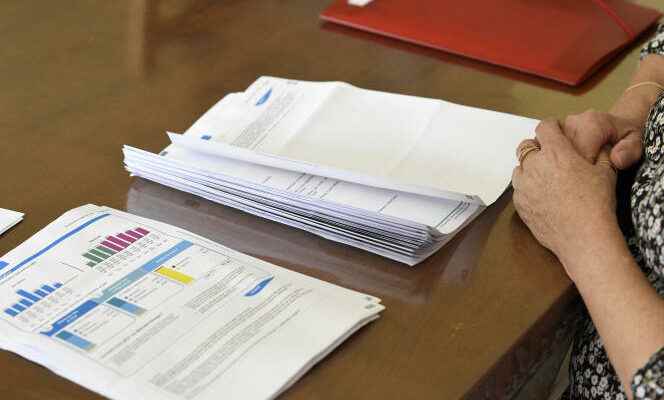Is soaring prices tipping the bank accounts of the French people “in the red”, and particularly those of the most modest? This is, in a very simplified way, the question that INSEE economists have sought to answer. For this, they peeled completely anonymously the evolution of the bank balances, savings books included, of around 600,000 customers, half of Crédit Mutuel and half of La Banque Postale, between January 2019 and August 2022.
First conclusion: the real value of household financial assets, i.e. the sum of all assets held in banks, including savings accounts, life insurance or securities accounts, has increased significantly during the pandemic . But it is now falling: between August 2021 and August 2022, the cumulative assets in constant euros fell by 1% for Crédit Mutuel customers, and by 2.2% for those of La Banque Postale, to customers in less affluent average. The financial situation of low-income households with a large energy budget – more than 100 euros per month and per adult, on average – has deteriorated markedly: it shows a drop of 4.7% between August 2021 and August 2022. , against 3.4% for modest households, but which do not have a high energy budget.
“Contained magnitude”
Second conclusion: this impoverishment of households is accompanied by greater financial precariousness. In concrete terms, the proportion of overdrawn households has been slowly increasing since the start of 2021, particularly among La Banque Postale customers. In this establishment, 7.6% of customers found themselves, over the period between January and August 2022, “in the red » at the end of the month, compared to 7% in 2020 and 7.2% in 2021. As for those who were overdrawn more than five days in the month, they represented 21.1% of clients in 2022, compared to 20.1% in 2020 and 20.4% in 2021. An evolution in appearance “of contained magnitude”recognizes Nicolas Carnot, director of economic studies and syntheses at INSEE, “but which still represents a 5% increase in the number of customers in this case”.
” To preserve their financial situation, households cut back on their savings – which explains why wealth is declining – and monitored their purchases “, continues Mr. Carnot. Examination of bank data shows in particular that fuel and energy expenditure has increased for the most exposed category – modest people with a high energy budget – by 32 euros monthly over one year, or 13%, while the energy saw its prices soar by more than 30%. ” This implies a decline in their consumption in volume “, concludes INSEE. A sobriety that is probably not chosen.
